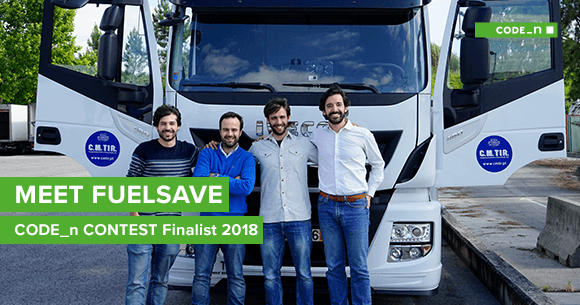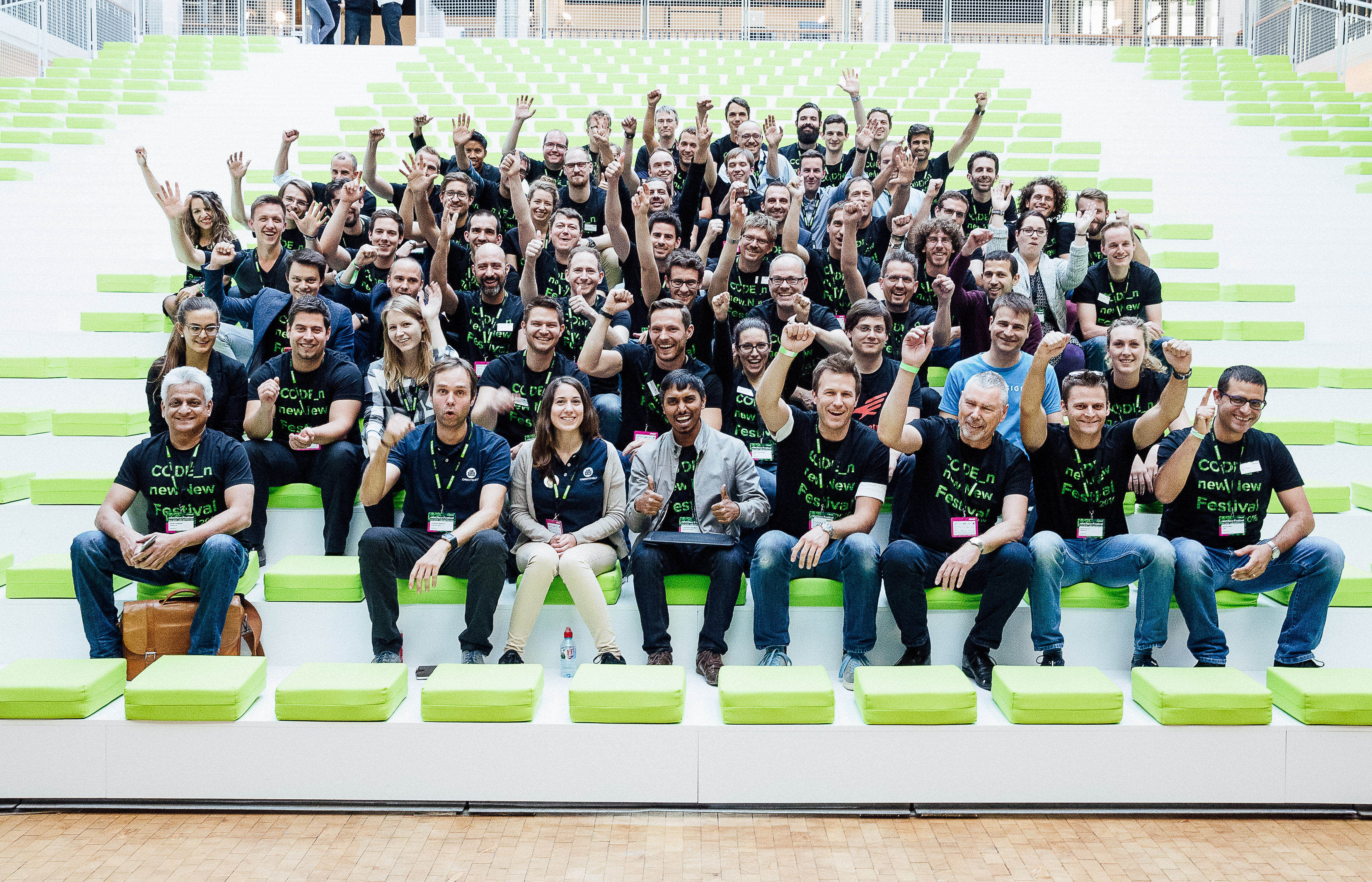MEET OUR CODE_N CONTEST FINALISTS 2018: FuelSave from Portugal
 Instead of just worrying about the future, they’re working to make it better – meet Portuguese startup, FuelSave. Creating the only mobile app that performs live training for truck drivers, FuelSave brings in a unique methodology that allows road freight companies to save up to 20% in fuel, thus reducing consumption costs of harmful gas emissions while driving. Using machine learning, the team is currently developing software that will automatically write training modules for individual drivers, thus aiming to help thousands of companies save around 1 billion liters of fuel. We spoke to Luís Mendes, Head of Business at FuelSave, who explained us what the company focuses on and how they are reducing the carbon footprint of the industry.
Instead of just worrying about the future, they’re working to make it better – meet Portuguese startup, FuelSave. Creating the only mobile app that performs live training for truck drivers, FuelSave brings in a unique methodology that allows road freight companies to save up to 20% in fuel, thus reducing consumption costs of harmful gas emissions while driving. Using machine learning, the team is currently developing software that will automatically write training modules for individual drivers, thus aiming to help thousands of companies save around 1 billion liters of fuel. We spoke to Luís Mendes, Head of Business at FuelSave, who explained us what the company focuses on and how they are reducing the carbon footprint of the industry.
Iulia: What is FuelSave all about?
Luís: FuelSave technology allows road freight companies to save up to 20% in fuel and gas emissions merely by retraining drivers for better performance. After three years of research, we have developed a methodology that in just one year saved €1.2 million in fuel expenses for a single company with 350 trucks. We are currently developing the mobile app to provide live training for truck drivers by using unique pairs of data, that each truck-driver pair performs differently. We collect the data with specially developed hardware that is connected to the internal truck information system (CAN), known as fleet management system. We also use a standard android tablet inside the truck cockpit as a driver interface.
This interface provides driving suggestions on the screen horizon in front of the driver. Google Maps provides drivers with alternative suggestions in advance on which lane or exit to take. Our solution suggests specific RPMs, pedal pressures, the type of brake configuration, etc. These suggestions are derived by crunching data based on truck telemetry and machine learning modules.
Because our system is always listening in on the truck information system, once a suggestion has been made we can understand if the driver has completed his or her task. This information is used to improve training modules for each pair of truck drivers.
Iulia: How did you come up with the idea?
Luís: The idea for the technology came from one of the founders when he published a thesis on eco-driving. His paper looked at the use of truck telemetry data and numerical analysis to train drivers through a dedicated instruction team. The results of the 2015 thesis showed that using numerical analysis on data retrieved from trucks (CAN) makes it possible to determine a small set of variables that have an almost 90% impact on fuel efficiency. The subject of the thesis was a freight company with over 600 trucks. The first prototype increased company fuel efficiency by 8% and subsequent iterations of the numerical models raised fuel efficiency from 8% to 18%.
The idea behind the business was hit upon when the founders went to Austria in 2017. It was their first meet-up after many years out of touch with one another. After a number of days talking about their jobs, they decided to launch the business concept based on the thesis of one of the founders and start a new enterprise, thus giving birth to FuelSave.
Iulia: What are you trying to solve?
Luís: We help road freight companies to save on fuel costs. The road freight market is mature and competitive and companies have an EBITDA margin of 4% to 6%. The single most significant expense is fuel, amounting to around 40% of total operating expenditures. To address this issue, FuelSave is developing a technology that allows road transportation companies to save up to 20% of the fuel they use. Naturally, this helps them to become more competitive in their markets. Road freight transportation involves moving everything that is delivered to industry and our fast moving society. Unlike rail, air, or boat transportation, freight-forwarding by road always plays a role in logistics. In Europe alone, road freight requires 146 billion liters of fuel per year.
It is the single biggest consumer of energy. We want to help by reducing the carbon footprint of the industry, while at the same time making it more competitive.
Iulia: How do you contribute to disruption in your field? And finally, we’d like to know where you see the future of your FuelSave technology, beyond what you are working on right now.
Luís: FuelSave is a company focused on helping road freight companies to save fuel. For the past three years, we have studied the parameters that drive fuel efficiency. We are currently developing proprietary software that will use machine learning to automatically write training modules for individual drivers. Our mission is to be a key player in cutting energy consumption and exhaust emissions. We aim to help thousands of companies save around 1 billion liters of fuel.
We believe in creating a venture in the long term. Looking to the future, we think that electric motors and autonomous fleets will create new and as-yet untapped opportunities. Refitting vehicles, realigning staff arrangements, and retraining people will require substantial volumes of data, and the key performance indicators we can provide our clients with will arm them with the appropriate business intelligence. Thus we expect to create a Business Intelligence Centre to support the change to more efficient autonomous driving.
Lastly, one of the most critical questions remains unanswered. Of all the essential endeavors facing humanity, if it were possible to reduce gas and carbon emissions with just one small fleet, just think how much the world could save if everyone adopted more sensible driving habits. In monetary terms, the benefits would be inestimable. We believe that significant savings are possible by reducing excessive consumption, but to do this people also need to be willing to adapt their driving habits.
Iulia: Thank you for the interview, Luís!
Meet FuelSave at the new.New Festival 2018 this fall, in Stuttgart!






Write a comment